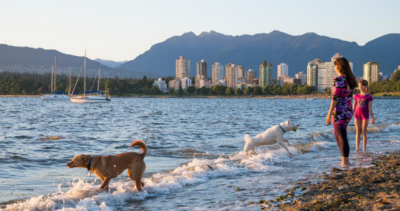
The Metro Vancouver regional govt is expected to adopt new know-how in tests the top quality of leisure waters.
The shift is aimed at limiting the quantity of days of seaside closures owing to bacterial contamination.
This indicates that website visitors will perhaps have additional times on beach front, specifically for the duration of summer time.
Latest screening solutions call for at least 18 hours in advance of success turn out to be obtainable.
The new method named quantitative polymerase chain reaction or qPCR will shorten the transform about time to three hrs.
The regional authorities displays the drinking water high-quality of recreational waters from Could to September.
On the net, Metro Vancouver explains that swimming and non-swimming beaches are analyzed at least when a week.
Samples are taken from all around 120 sites in 40 destinations across the region.
The checks evaluate levels of E. coli microbes, an indicator of fecal contamination.
Take a look at results are provided to regional wellness authorities and municipalities, which then suggest whether or not shorelines are safe.
The adoption of qPCR is a single of six tasks proposed for funding below Metro Vancouver’s H2o Sustainability Innovation Fund.
A report to the board of the regional governing administration mentions a ask for of $200,000 to fund the project in 2022 and 2023.
The report well prepared by Lucas Pitts, a director in the drinking water providers office, is included in the board’s agenda on February 25.
“Since 2011, the ordinary number of days of seashore closures is approximately 14 times for each time, mostly owing to longer turn all-around times when using current tests and investigation techniques,” states an government summary for the undertaking.
The new engineering will “improve the seashore checking plan through decreasing the flip about time among sampling and tests, beach closure and reopening”.
“By lowering the amount of times that beaches are shut through the summer, the job promotes a properly-managed purely natural surroundings and positive visitor activities, local community engagement and wellbeing,” the summary notes.
“This in flip enhances general public notion of the regional seashores and h2o bodies,” it also states.
In addition, “Reducing the amount of days that the shorelines are shut rewards firms that count on the beach locations to bring in their customers, i.e. rental firms, dining establishments, and leisure groups.”
More





More Stories
Martial Art Styles – Benefits for Women
Anime – Five Different Types and Why You Will Enjoy Them
Eclectic Decor, Artistic Elements